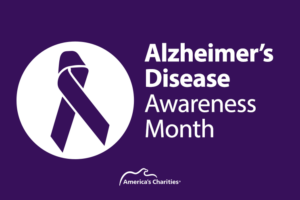Sarah Ford | October 10, 2014
MGM National Harbor: A Case Study in Trust and Corporate Citizenship
At the end of 2013, MGM Resorts International had the capacity to operate in three states – Nevada, Mississippi, and Michigan. At beginning of 2014, another state was added to that list: Maryland.
The path leading to the Maryland expansion was a multiyear process. In 2012, the state passed Question 7. The bill opened up gaming, including the creation of a new casino in Prince George’s County (adjacent to Washington, D.C). The bill also created a competitive bidding process, which MGM won in late 2013 after besting two other contenders.
The opportunity for the company was obvious. Winning the bid represented a significant expansion of MGM’s operations in the U.S. The location of the resort casino is at National Harbor, a burgeoning tourist destination adjacent to a major population center, and accessible to highways connected to the whole East Coast. And yet, despite a winning design and a strong grassroots campaign, the opportunity was in no way a done deal.
What Was at Stake?
Interestingly, MGM’s hopes for establishing a new resort casino depended, to a significant extent, on its reputation…and resultant public goodwill. By the time MGM submitted its proposal, significant money had already been spent to create it, and to push for its acceptance. Yet even with a very strong proposal, any amount of outcry from the public could derail years of MGM’s hopes and efforts.
What’s interesting about the MGM scenario is that years of future revenue depended on the character of the company. The gaming commission and the community in Prince George’s County both needed to trust MGM. They needed to trust that the company wouldn’t deviate significantly from its proposal. They needed to trust representatives from MGM when they said that 70% of the company’s revenue is from activities outside of gaming. They needed to trust that MGM would be a valuable partner in the community. As one resident put it:
While we welcome the jobs and increased revenue the casino will bring … The company must demonstrate a record of practicing corporate social responsibility within the communities where it has operated. Companies that show indifference to the concerns and wellbeing of the local community should be eliminated from further consideration. – James Boardley, South County Economic Development Association, Inc.

Get Resources and Insights Straight To Your Inbox
Explore More Articles
Open Position: Customer Service Coordinator (Remote-Part Time)
Position Title: Customer Service Coordinator (Remote – Part Time) Department: Charitable Funds Management Solutions We are a non-profit charitable organization looking for skilled individuals who…
Read ArticleGet Resources and Insights Straight To Your Inbox
Receive our monthly/bi-monthly newsletter filled with information about causes, nonprofit impact, and topics important for corporate social responsibility and employee engagement professionals, including disaster response, workplace giving, matching gifts, employee assistance funds, volunteering, scholarship award program management, grantmaking, and other philanthropic initiatives.




